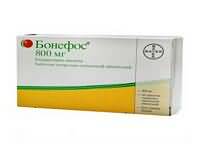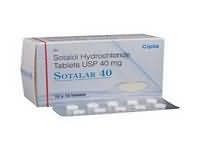sorafenib

CLINICAL USE
Treatment of advanced renal cell carcinomaDOSE IN NORMAL RENAL FUNCTION
400 mg twice dailyPHARMACOKINETICS
DOSE IN RENAL IMPAIRMENT
GFR (mL/MIN)
30–50 Dose as in normal renal function10–30 Dose as in normal renal functionDOSE IN PATIENTS UNDERGOING RENAL REPLACEMENT THERAPIES
IMPORTANT DRUG INTERACTIONS
Potentially hazardous interactions with other drugsADMINISTRATION
Reconstition
–Route
OralRate of Administration
–Comments
Administer preferably without foodOTHER INFORMATION
Increased amylase and lipase and hypophosphataemia are commonMost common side effects are diarrhoea and dermatological effectsSorafenib is metabolised primarily in the liver and undergoes oxidative metabolism mediated by CYP3A4, as well as glucuronidation mediated by UGT1A9Following oral administration of a 100 mg dose of a solution formulation of sorafenib, 96% of the dose was recovered within 14 days, with 77% of the dose excreted in faeces, and 19% of the dose excreted in urine as glucuronidated metabolites. Unchanged sorafenib, accounting for 51% of the dose, was found in faeces but not in urine, indicating that biliary excretion of unchanged drug might contribute to the elimination of sorafenibA case report of interstitial nephritis has been reported in a patient with CRF due to FSGS.
See how to identify renal failure stages according to GFR calculation
See how to diagnose irreversible renal disease
Home








